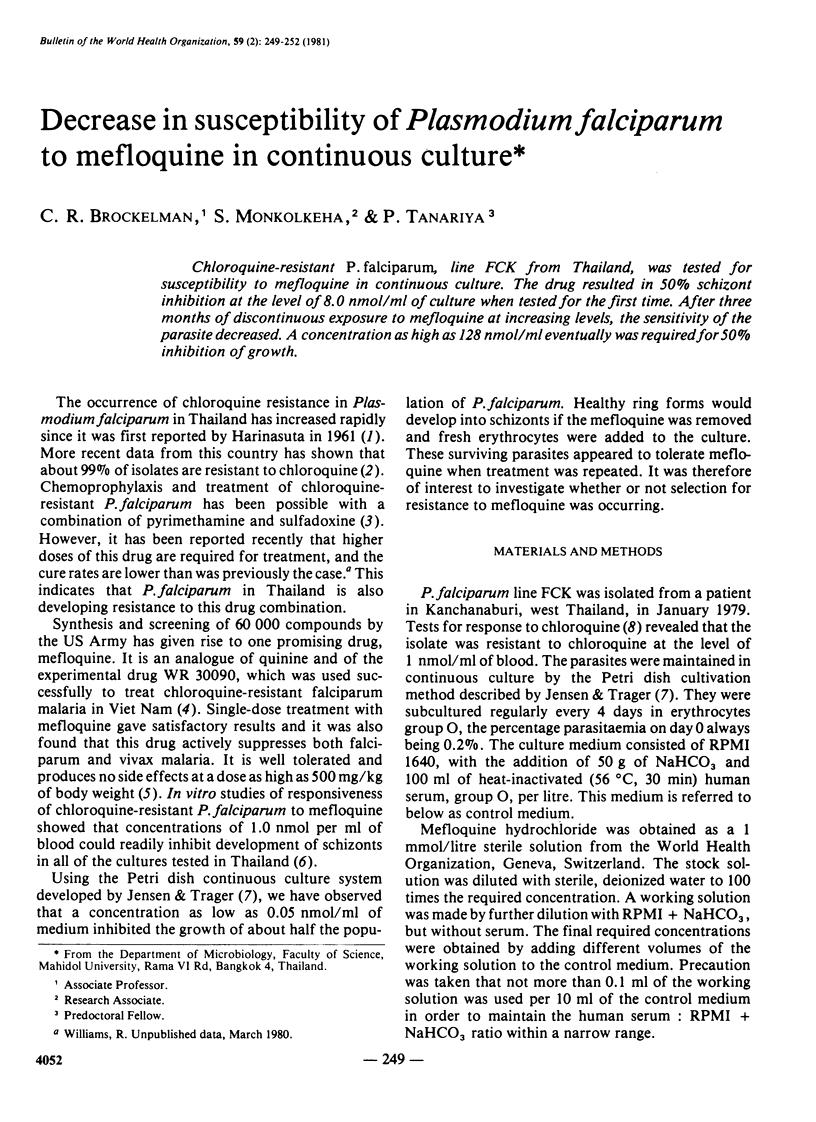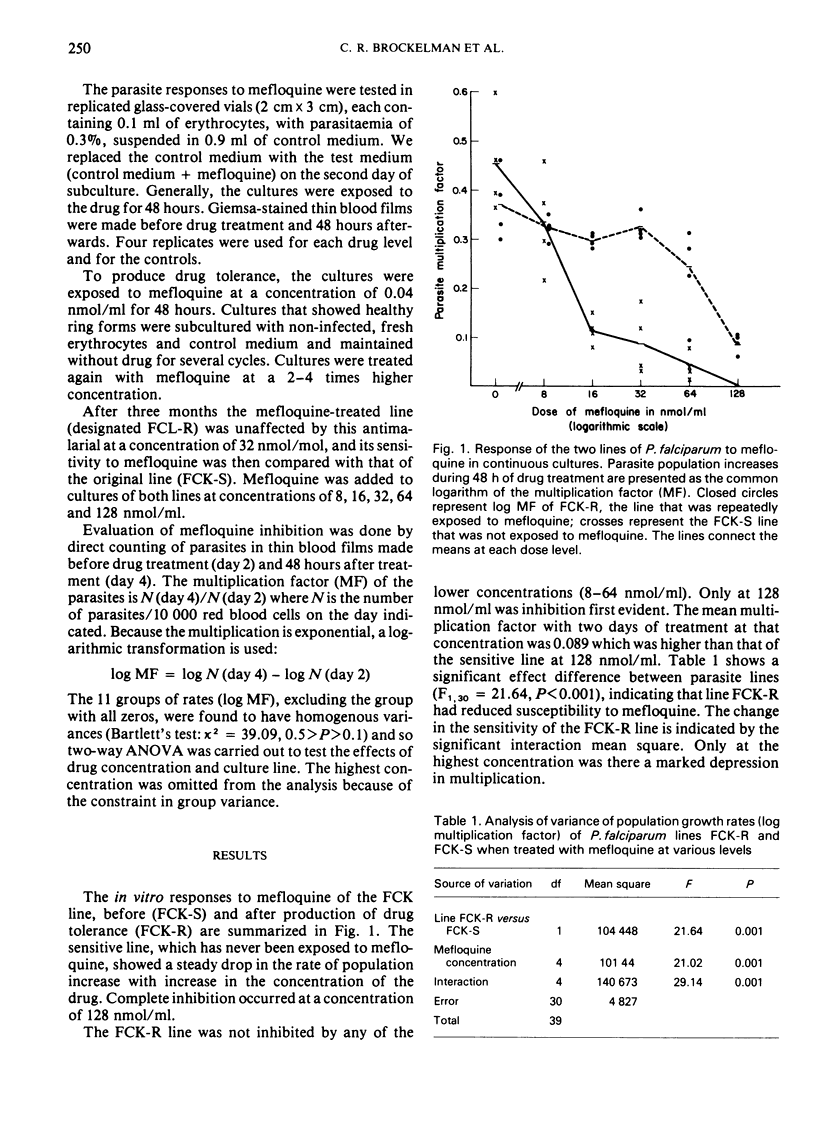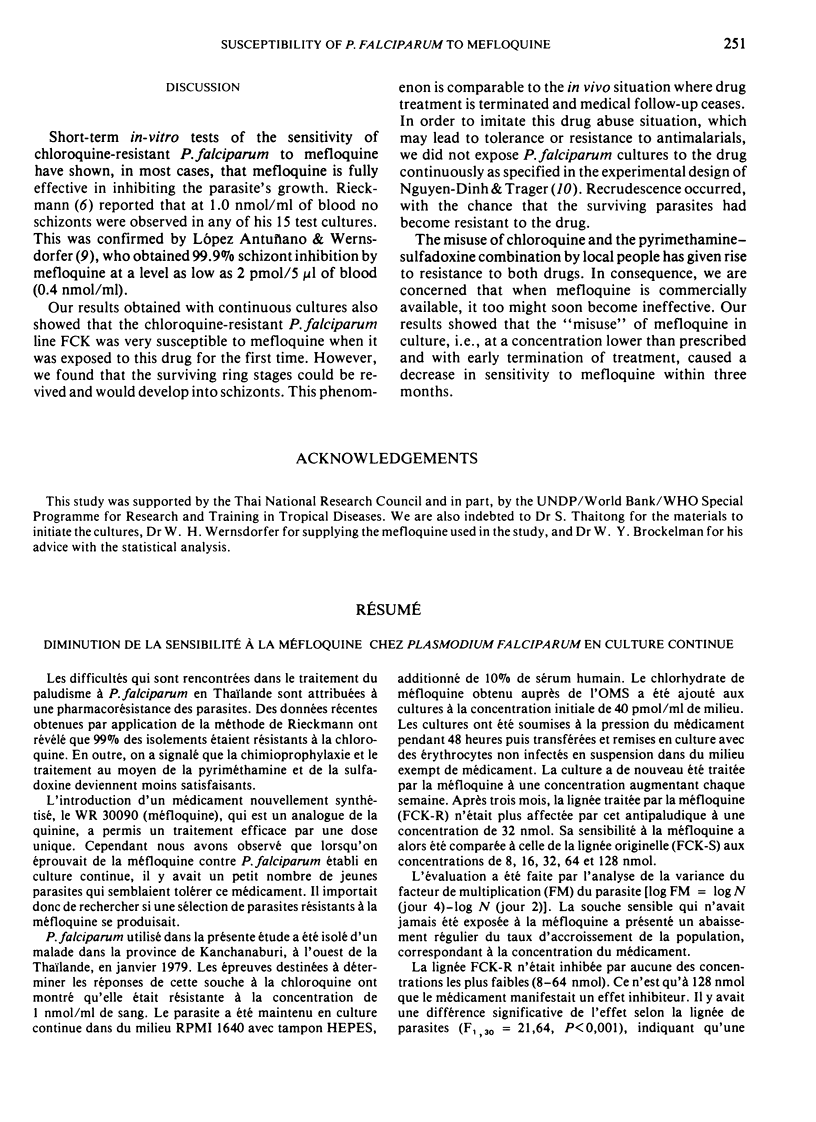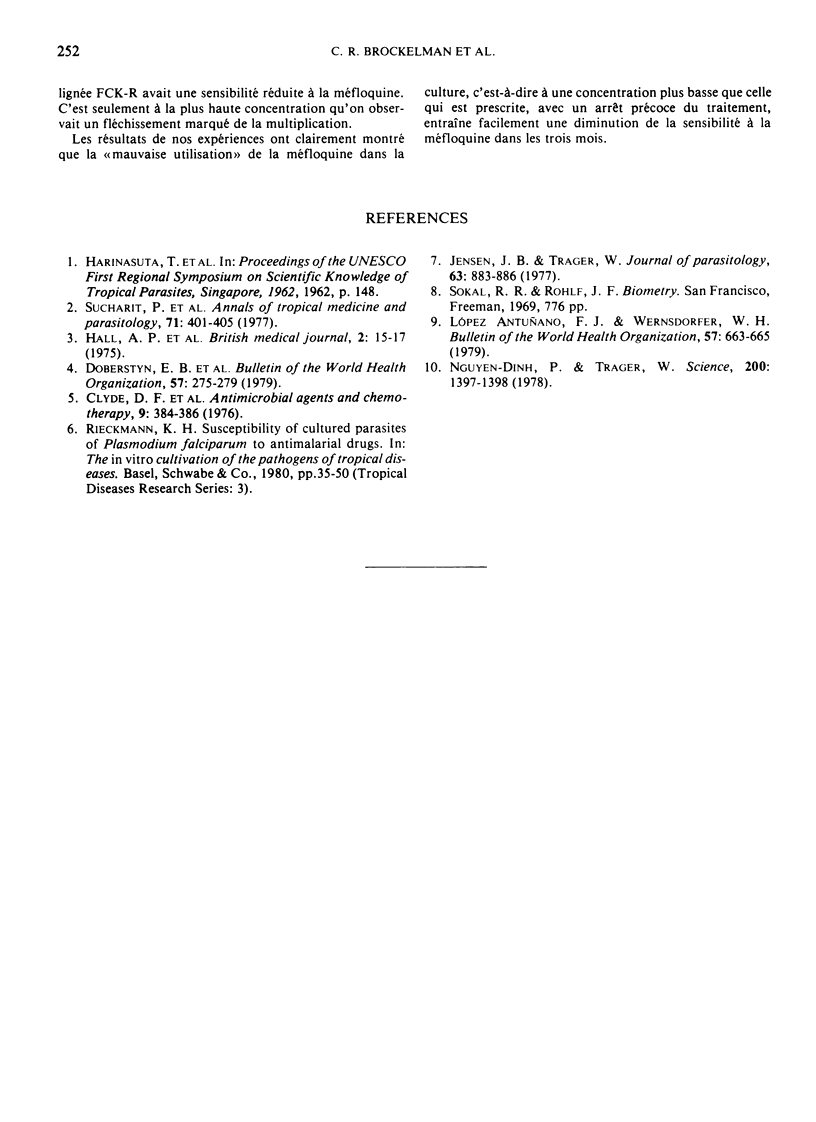Abstract
Chloroquine-resistant P. falciparum, line FCK from Thailand, was tested for susceptibility to mefloquine in continuous culture. The drug resulted in 50% schizont inhibition at the level of 8.0 nmol/ml of culture when tested for the first time. After three months of discontinuous exposure to mefloquine at increasing levels, the sensitivity of the parasite decreased. A concentration as high as 128 nmol/ml eventually was required for 50% inhibition of growth.
Full text
PDF



Selected References
These references are in PubMed. This may not be the complete list of references from this article.
- Clyde D. F., McCarthy V. C., Miller R. M., Hornick R. B. Suppressive activity of mefloquine in sporozoite-induced human malaria. Antimicrob Agents Chemother. 1976 Mar;9(3):384–386. doi: 10.1128/aac.9.3.384. [DOI] [PMC free article] [PubMed] [Google Scholar]
- Doberstyn E. B., Phintuyothin P., Noeypatimanondh S., Teerakiartkamjorn C. Single-dose therapy of falciparum malaria with mefloquine or pyrimethamine-sulfadoxine. Bull World Health Organ. 1979;57(2):275–279. [PMC free article] [PubMed] [Google Scholar]
- Jensen J. B., Trager W. Plasmodium falciparum in culture: use of outdated erthrocytes and description of the candle jar method. J Parasitol. 1977 Oct;63(5):883–886. [PubMed] [Google Scholar]
- López Antuñano F. J., Wernsdorfer W. H. In vitro response of chloroquine-resistant Plasmodium falciparum to mefloquine. Bull World Health Organ. 1979;57(4):663–665. [PMC free article] [PubMed] [Google Scholar]
- Nguyen-Dinh P., Trager W. Chloroquine resistance produced in vitro in an African strain of human malaria. Science. 1978 Jun 23;200(4348):1397–1398. doi: 10.1126/science.351801. [DOI] [PubMed] [Google Scholar]



